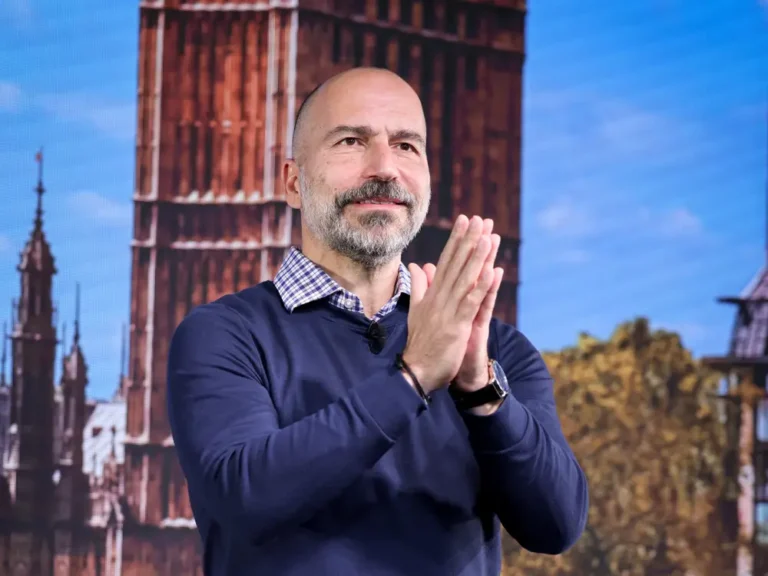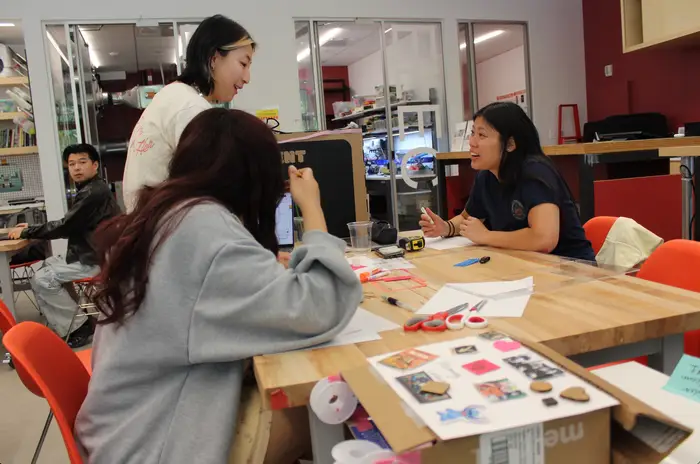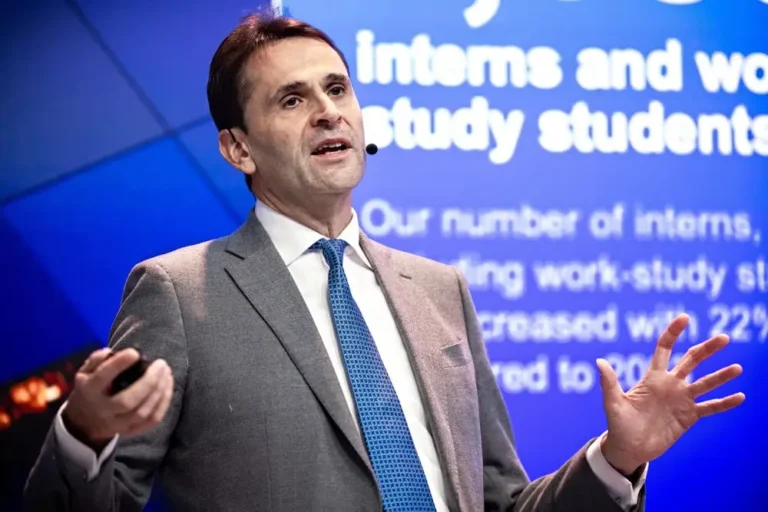Job seekers are using controversial AI ‘teleprompter’ apps to ‘crush’ their interviews
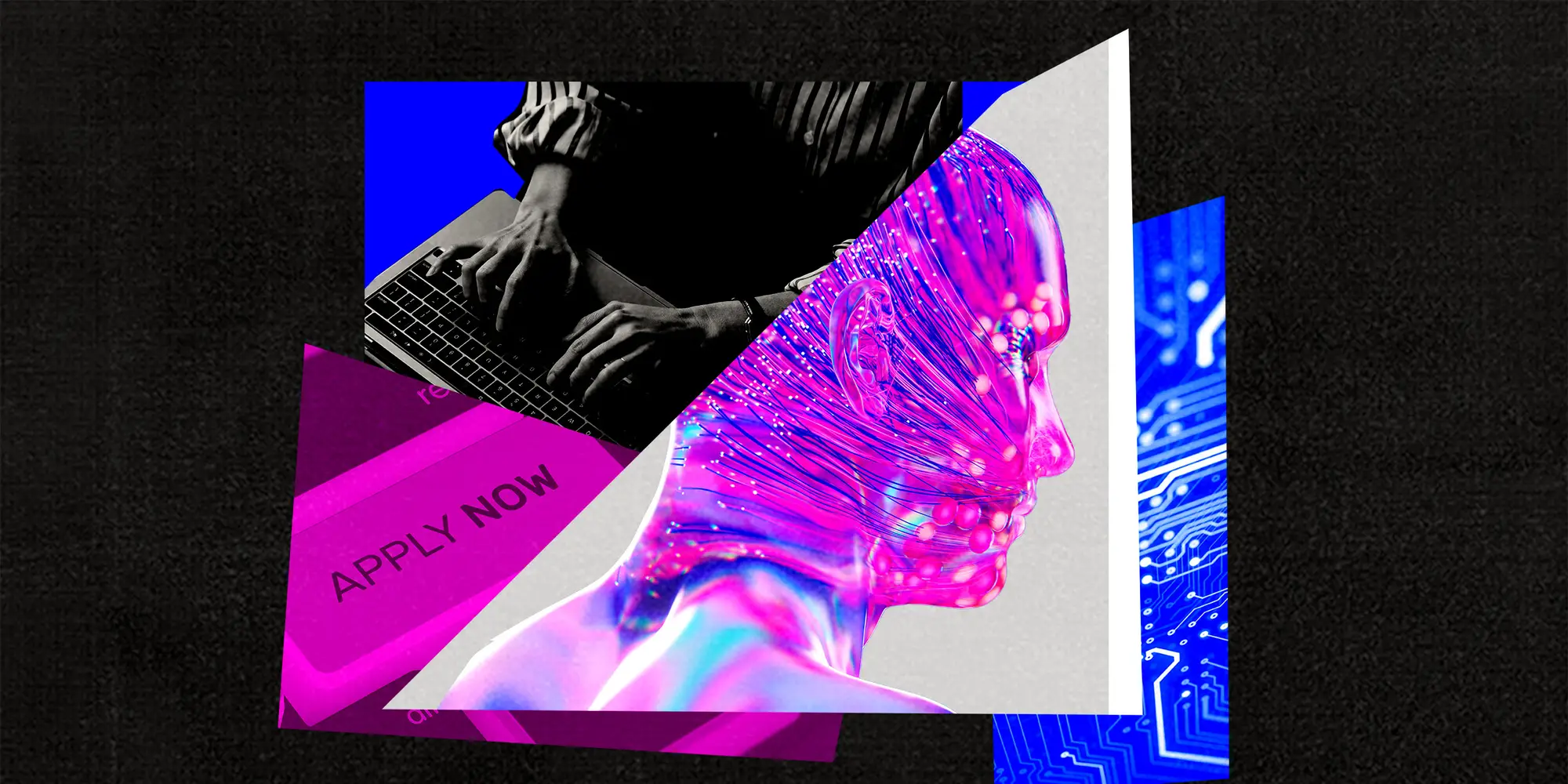
Michael Guan wants you to use AI to bluff your way through that job interview. Just don’t call it cheating.
He’s the cofounder and CEO of Final Round AI, a startup building artificial intelligence-powered tools for job seekers. There’s an AI résumé builder, a cover letter writing service, and a mock interview tool. And — more provocatively — there’s Copilot, an app that listens in on job interviews and quietly feeds the interviewee with answers they can read out.
“It can prompt the candidates with the right thing to say at the right time,” he told me. “Like a magical teleprompter, using AI.”
AI mania has engulfed the business world, and recruiting isn’t immune. There are now AI-drafted messages to reach out to potential candidates, AI tools for identifying more diverse talent, and even entire job interviews conducted by AI systems capable of deciding who to hire.
Candidates looking to get a leg up have also quietly embraced the technology. An array of tools have proliferated for providing word-perfect answers, often unbeknownst to interviewers, using advances in natural language processing and voice-to-text transcription.
Some people have built bare-bones, homebrew tools and released them for free online. Some have co-opted legitimate companies’ software, like transcription tools built by Otter.ai. Others, like Final Round, are seeking mainstream legitimacy in a bid to fundamentally transform how hiring works.
There’s a debate in Silicon Valley about the appropriateness of candidates using AI in job interviews. Some believe it’s the inevitable future; others think it undermines the entire point of the recruitment process — finding someone who can actually do the work.
Guan shrugged off the concern.
“If they can use AI to crush an interview, they can for sure continue using AI to become the top performer in their daily jobs,” he said.
‘Proxy interview’ services embrace AI
People have been trying to get an advantage in job interviews for years.
There’s a thriving underground industry for “proxy interview” services — paid helpers who surreptitiously support candidates during interviews. Traditional hacks are risky. Some candidates lip sync while their proxy speaks in the background, but this can be unconvincing, as seen in multiple viral videos. Others do a “bait-and-switch,” sending an entirely different person to the interview. That’s fraught with dangers, as we previously reported.
Now, AI tools are changing the proxy game, particularly Otter.ai. Otter isn’t intended for proxy interviews; it’s a service for transcribing conversations and meeting minutes. But proxy interview providers have embraced its real-time transcripts to secretly feed candidates the answers to tough questions. A proxy can listen in to the call and speak convincing answers into a mic, and their words will appear on the candidate’s screen near-instantaneously. Then, the candidate reads out these answers.
Proxy providers hawk their services in Facebook and Telegram groups, many with thousands of members apiece. References to “Otter” are routinely included in their promotional posts. Desperate job hunters post in the same groups, sometimes specifying they want a proxy who can use the app. The same groups are also used to hire “shadow stand-ins,” someone you secretly outsource work to once you get the job.
“Any proxy available on AWS DevOps,” a candidate in one February post asked. “Tomorrow is interview. Need ‘Otter’ type proxy.”
An AI-powered proxy interview demo
Arjun, a professional interview proxy, hopped on a call to explain how it worked and then gave a demo. (We are sharing just his first name to preserve his anonymity).
He sent a link via WhatsApp, which took me to a blank page on Otter’s website. Then words started appearing on-screen, moments after he said them.
“You will be able to see whatever I’m talking,” flashed across the page. “If you click that link, you will be able to see whatever I’m talking from this side.”
Nobody wants to use a proxy, Arjun said. “They’re desperate about the role and desperate about the job,” he told me. “Their situation is making them do this. But the first thing first is, I always want the candidate to try by themself.”
Otter did not respond to a request for comment.
From homebrew tools to professional startups
Other AI tools are cutting out the proxy middle-man entirely.
“tech-int-cheat” is a barebones tool that can be downloaded on GitHub or as a Google Chrome extension. It’s marketed to help “cheat on technical interviews.” Using OpenAI’s ChatGPT, it reads the automatic closed captions in Google Meet video calls and outputs real-time potential answers.
Another free option is Ecoute, which listens to the users’ audio to generate responses. It bills itself neutrally as helping “users in their conversations by providing live transcriptions and generating contextually relevant responses.” However, viral TikToks about the app say Ecoute will “help you cheat your way through interviews.”
Then there are professional outfits. AiApply is the brainchild of Aidan Cramer, a London-based serial entrepreneur. His three-person team is now closing a roughly $500,000 pre-seed funding round, Cramer said, and it has various AI tools for job seekers. These include a résumé builder, an “Auto Apply” service for automating applications, an AI agent for mock interviews, and the work-in-progress “Interview Buddy,” a tool that will give job hunters prompts in real time during actual job interviews.
“It kind of will listen to the question that’s been asked by an interviewer,” Cramer, the CEO, said. “It will look at the job seeker’s résumé, and it will kind of give them some bullet points or prompts that will help them answer and ease the anxiety of job interviews and help the candidate relax into the process.”
Interview Buddy will draw on users’ personal information to customize responses. But it won’t help them with technical or knowledge-based questions.
“That is kind of crossing the line, where it’s not actually in the interest of the candidate or the employer if they’re getting information that they don’t actually know,” he said.
Guan says the interview process is broken
Final Round is happy to cross that line and help users with technical questions.
Launched in the fall of 2023, its flagship product, Copilot, listens to video interviews and suggests answers, both to tricky queries in technical interviews and questions about the candidate’s background.
Earlier this year, it was accepted into HF0, a startup accelerator program in San Francisco for repeat founders. An immersive three-month program, HF0 hosts a cohort of startups, taking care of their every need so they can focus on “the 12 most productive weeks of an engineer’s life.” Accepted startups are given $500,000 in funding in return for a 2.5% fee, the organization tweeted in 2023.
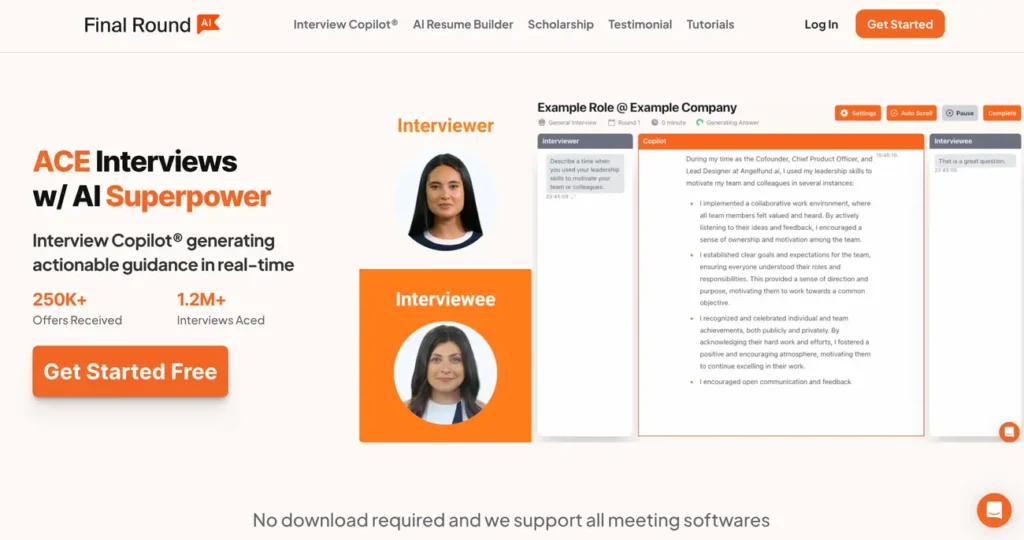
The homepage of Final Round AI, showing its Copilot app’s interface
I visited Guan and cofounder-slash-CTO Jay Ma at HF0’s San Francisco base, a $12.7 million mansion a stone’s throw from the iconic “Painted Ladies.” After a tour of the amenities — a mini-sauna, a coffee bar, a basement gym, a cold-plunge pool — we sat in the dining hall, and I asked the obvious question: Is this just cheating?
“When you use AI to write emails, do you consider that as cheating?” Guan asked. “When you use AI to do homework, do you consider that as cheating?” (“That’s a controversial question,” I noted.)
He argued that the way candidates are assessed and hired is fundamentally broken. Guan argued that using AI during a job interview isn’t underhanded; it shows the worker’s ingenuity.
“AI is challenging all of our norms,” he said. “I grew up in China, and before university, no one was allowed to use calculators on campus. But when I visit the US, I find out my US friends are using calculators since kindergarten. Is it considered as cheating? No, it’s just a different perception towards tools.”
He added that AI usage is inevitable, an “industry revolution,” so companies should embrace it.
Should candidates disclose using Final Round’s tools?
“That’s their responsibility,” Guan said. “If they want to disclose yes, why not? Yeah. We are here to just provide you with a product.”
A Final Round Copilot demo
Then, it was time to test Copilot. Using two laptops, Guan set up a Google Meet video session. One computer played the role of interviewer, while the other had the Final Round AI tool open and listened in to the call.
“Could you tell me a little bit why you’re a good fit ?” I asked.
Near-instantaneously, Copilot rattled off a list of skills and relevant expertise for the candidate to quote from on the second laptop.
Next question: “Are you using AI to help you with this interview?”
“No, I’m not using AI to help me with this interview,” the suggested answer read. “My response lag was due to a minor latency issue with my wifi connection. I appreciate your patience with this exciting opportunity.”
Guan and Ma laughed awkwardly.
Final Round’s big claims
Final Round’s promotional materials make bold claims about the young startup’s growth.
The startup’s website said it is “selected and supported by” multiple major tech firms: Amazon’s AWS Startups program, Google for Startups, Microsoft for Startups Founders Hub, Intel Liftoff, and Nvidia Inception Program. It also features testimonials from customers who purportedly used Final Round’s tools to get jobs at high-profile companies — including Amazon, Google, and Microsoft.
An Amazon spokesperson declined to comment, but shortly after I reached out, the Seattle tech giant’s logo disappeared from Final Round’s website.
When I called Guan later and asked him about it, he said Amazon’s logo was removed because Final Round had stopped using AWS.
Google, Microsoft, Intel, and Nvidia didn’t respond to requests for comment.
‘Serving a million users’
As early as January 1, 2024, according to an archived version of its website on the Wayback Machine, Final Round’s website said it was involved in more than 1.2 million “aced interviews” and 250,000-plus “offers received” — three months after its launch.
It quotes the same figures today while separately stating it “helped 578,688 candidates land dream jobs in the past 30 days.” For context, there were around 5.6 million total nonfarm hires in the US in April, according to the Bureau of Labor Statistics.
When we met, Guan said Final Round’s growth was driven by social media. (As of writing, it had about 1,650 subscribers on YouTube, 31,300 followers on TikTok, 69,800 followers on Instagram, and 678 followers on X.) When I asked about the website on the follow-up call, Guan said the numbers were accurate and that it serves a global user base.
“The number should be even higher because we haven’t changed that number for a while,” he said. “Now we are serving a million users.”



